"Let us have a dagger between our teeth, a bomb in our hands, and an infinite scorn in our hearts."
— Benito Mussolini
Introduction
It has become all too common to see the word fascism used to belittle or attack opponents by both ends of the political spectrum. As a result of the misuse of the word fascism, it has lost much of its scholarly and historical definition. Communists, like Gramsci, wrongly attributed fascism to an anti-proletarian reaction and irrational and contradictory movement employed by the bourgeoisie to stave off the inevitable decay of capitalism. Gramsci saw fascism as a response to the working class's growing influence, yet this view plainly misrepresents the nature of fascism and its syndicalistic roots. Liberals attribute anything they view as authoritarian to fascism. Even self-proclaimed “fascists” wrongfully reduce it to a caricature of violence and racism and choose to ignore the philosophical foundations.
While engaging in research for another article that I am in the process of writing, it became clear to me that the modern-day understanding of fascism has become all too polarized and unscholarly. Writers such as Jason Stanley, Robert Paxton, and Hannah Arendt, though offering valuable insights, have misdefined fascism and have led readers astray in an attempt to warn of the “dangers” of fascism. To further prevent a skewed understanding of fascism as an ideology, below I have created a list of books that I believe are scholarly and complete works that accurately define fascism. I am confident these works, written in the order I believe is best, alongside my upcoming article, will begin to address the gaps in understanding and offer a more accurate, scholarly approach to fascism.
Prerequisites (Optional)
The following books are, in my opinion, essential for understanding the philosophical foundations of fascism. Though not strictly required, I recommend engaging with them before moving on to more specialized or scholarly texts.
Georg Wilhelm Friedrich Hegel – The Phenomenology of Spirit
While Hegel is a hard author to understand, his thoughts actively influenced the thoughts of Giovanni Gentile, and as such, it is my opinion that to understand Gentile and his actual idealism, we must read Hegel and his works to understand. The Phenomenology of Spirit is the cornerstone of Hegel’s philosophy, in which he discusses his dialectical method, the development of self-consciousness, and the master-slave dialectic. Gentile adapted these Hegelian themes to develop actual idealism and the foundation for fascist thought. If Hegel proves too hard, as it did for me when I started out, I recommend moving on to Gentile’s easier works and circling back once done.
Georg Wilhelm Friedrich Hegel – Elements of the Philosophy of Right
In this work, Hegel represented the state as the highest expression of the universal will, and the realization of freedom. For Hegel, freedom does not constitute the pursuit of personal desires and interests, rather the participation in universal institutions, the ethical state is the realization of freedom. This ideal of the state as an ethical totality—transcending and unifying the individual—was directly adopted by Gentile in his construction of fascist ideology.
Giovanni Gentile – The Theory of Mind as Pure Act
This work represents the culmination of Gentile’s thoughts on actual idealism. Gentile argues that reality is entirely constituted by the active, thinking subject, and that all knowledge, action, and history are created through this spiritual act. This work formed the basis of the concept of the state, which is the collective spiritual expression of its citizens.
Giovanni Gentile – Genesis and Structure of Society
Genesis and Structure of Society provides the ethical foundation for fascist totalitarianism and justifies it using Gentile’s vision of the state as the ethical and spiritual embodiment of the people. Gentile also rejects Marxism’s class war. The work within this book is indispensable for understanding how fascist theory reimagined society, not as a battle between different classes, but rather as a spiritual and national unity brought into being through the self-conscious will of the people.
Giovanni Gentile – Origins and Doctrine of Fascism
The political text that laid the foundations for the rise of Italian Fascism and the Fascist state. In it, Gentile articulates the belief that fascism is not a reactionary or materialist doctrine but a forward-looking spiritual movement that synthesizes individual and collective will through the state, which draws directly from Hegel. The state and the citizens identification with it—to Gentile, this is true freedom. Also included in this work is The Reform of Education, which is also another prevalent work. I would highly recommend to readers to start with this and then continue on from there.
Recommended Readings
A. James Gregor – Giovanni Gentile: Philosopher of Fascism
In this book, Gregor discusses and traces the intellectual development of Giovanni Gentile and how his departure from passive idealism gave way to the development of actual idealism. Furthermore, Gregor goes into great detail in showcasing how Gentile’s philosophy laid the foundations for the fascist state, showcasing how fascism, as stated by many, is not an irrational or intellectually devoid political ideology but rather a system that is systematic, coherent, and philosophically legitimate.
Zeev Sternhell – The Birth of Fascist Ideology: From Cultural Rebellion to Political Revolution
To me, The Birth of Fascist Ideology is the most compelling and complete work on the formation of fascist ideology. Sternhell argues that fascism did not emerge as a reactionary movement but as a revolutionary response to the dominance of materialism in the early 20th century. It developed through a synthesis of Sorelian revolutionary syndicalism — itself a radical revision of Marxism — ultranationalism, and the cultural rebellion of futurism. Sternhell also contends that France, rather than Italy or Germany, was the true intellectual incubator of fascist thought.
Georges Sorel – Reflections on Violence
Arguably one of the greatest thinkers prior to the birth of fascism, Georges Sorel was a Marxist who rejected the materialism central to classical Marxist doctrine. In this work on revolutionary violence, Sorel advocates for violence as a morally regenerative force. Furthermore, Sorel believed that “myths” are what drive the people and act as a vital source of unity, inspiration, and revolutionary energy. Reflections on Violence is essential for understanding the intellectual roots of fascism and the role that Sorelian syndicalism played in shaping its revolutionary, anti-materialistic character.
Georges Sorel – The Decomposition of Marxism1
In this work, Sorel critiques the orthodox Marxist theoretical framework. He discusses how Marxist economic determinism and the importance of class struggle as the primary force for societal change are unable to adequately address the complexities of modern society. Sorel's central critique is that the true revolutionary force lies not in material conditions but in the will and collective action of the people, which must be motivated by powerful “myths” and “ideals.”
Filippo Tommaso Marinetti – The Futurist Manifesto
The Futurist Manifesto is a beautifully written piece of literature that inspired many people at the time of its release. Its rejection of liberalism, outdated traditions, glorification of violence as a necessary force for progress, and rejuvenation of the nation through the destruction of the old and the embrace of the new acted as a precursor to fascist thought. Furthermore, the aesthetic elements of Futurism, such as the glorification of speed, violence, and war, went on to influence fascist propaganda and aesthetics.
Emilio Gentile – The Struggle for Modernity: Nationalism, Futurism, and Fascism
Emilio Gentile offers an in-depth look into the ideological, political, and cultural forces that gave birth to Italian Fascism. Gentile argues the role of nationalism, the cultural influence of futurism, and the struggle between modernity and tradition gave birth to an explosive and vibrant totalitarian political religion. To Emilio, fascism’s goal was not just to rule politically but to remake the individual, the community, and the nation through spiritual revolution.
A. James Gregor – Young Mussolini and the Intellectual Origins of Fascism
Young Mussolini and the Intellectual Origins of Fascism is an essential book for anyone wishing to understand how fascism came to be in Italy. This book discusses the early Marxist thinking of Mussolini and his eventual shift from materialism to idealism; furthermore, the book discusses how Mussolini came to be inspired by thinkers such as Sorel, Gentile, and Hegel. It also shows how Mussolini’s exposure to Sorelian Revolutionary syndicalism and its glorification of violence, myth, and proletarian activism played a significant role in his transformation. Through this book, Gregor argues that fascism was not a reactionary, bourgeois, anti-socialist movement but a revolutionary revision of Marxism — as Marxism had failed to adapt to the modern political situation.
A. James Gregor – The Ideology of Fascism: The Rationale of Totalitarianism
Arguably the most in-depth work on this list and among the first that seriously considered fascism a coherent and intellectually vibrant ideology, seriously challenging the long-held notion that fascism was a reactionary movement lacking intellectual substance compared to liberalism and Marxism. It further builds upon the ideas that are prevalent in the books I have mentioned before this, such as fascism's leftist and syndicalistic roots, as well as the notion that fascism was a form of revolutionary modernism, designed to revitalize a decaying society by fusing technology, nationalism, and idealism. It is a foundational work that brought together the thoughts of Mussolini, Gentile, Sorel, and other intellectuals of fascism.
Emilio Gentile – The Origins of Fascist Ideology
The Origins of Fascist Ideology is deeply rooted in the context of the aftermath of WWI, examining the cultural and political crises that followed WWI, giving way to fascism, which synthesized elements of nationalism, revolutionary syndicalism, futurism, and anti-materialist idealism into a coherent ideological project. Furthermore, Gentile argues how intellectuals and cultural elites also contributed to fascist ideology—not just as propagandists, but as architects of a new political mythology rooted in myth, aesthetics, and collective identity.
A. James Gregor – Mussolini’s intellectuals
Mussolini’s intellectuals discusses the prominent fascist thinkers during the fascist regime and the evolution of fascist thought. Some prominent intellectuals it discusses are Alfredo Rocco, Ugo Spirito, Sergio Panunzio, and, once again, Giovanni Gentile. Throughout the book, Gregor proves that fascism was rooted in intellectual engagement, with philosophers, theorists, and political activists shaping its core principles, rather than being a nonsensical and obtuse political philosophy.
Benito Mussolini – My Autobiography
What better way to understand the strongman of fascism than to read his own thoughts? The autobiography of Mussolini is essential for understanding what Mussolini thought of the fascist state and how his political and philosophical ideology evolved throughout his tenure as the editor for Avanti! and as Duce. Mussolini’s own words allow readers to understand the motivation behind the fascist project, offering a more personal and complex portrayal of the man and his ideas.
Conclusion
Engaging with these primary sources and scholarly works has personally given me more insight into the nature and intellectual foundations of fascism than any modern author or secondary commentary. This list is the product of my ongoing search for unbiased and impartial material for an upcoming article, and it is my hope that you, the reader, will also find it useful in dispelling common myths and biased interpretations.
While I believe this list is both extensive and comprehensive, I do not consider it complete. I will continue to update it regularly and add any additional resources that I find crucial for a deeper and more accurate understanding of fascism.2
"Fascism is not only a party, but a regime and above all a conception of life."
— Giovanni Gentile
The Decomposition of Marxism was impossible for me to find on its own other than in French, thus I have provided another book which contains the essay in English.
Anna’s Archive (you’re welcome)

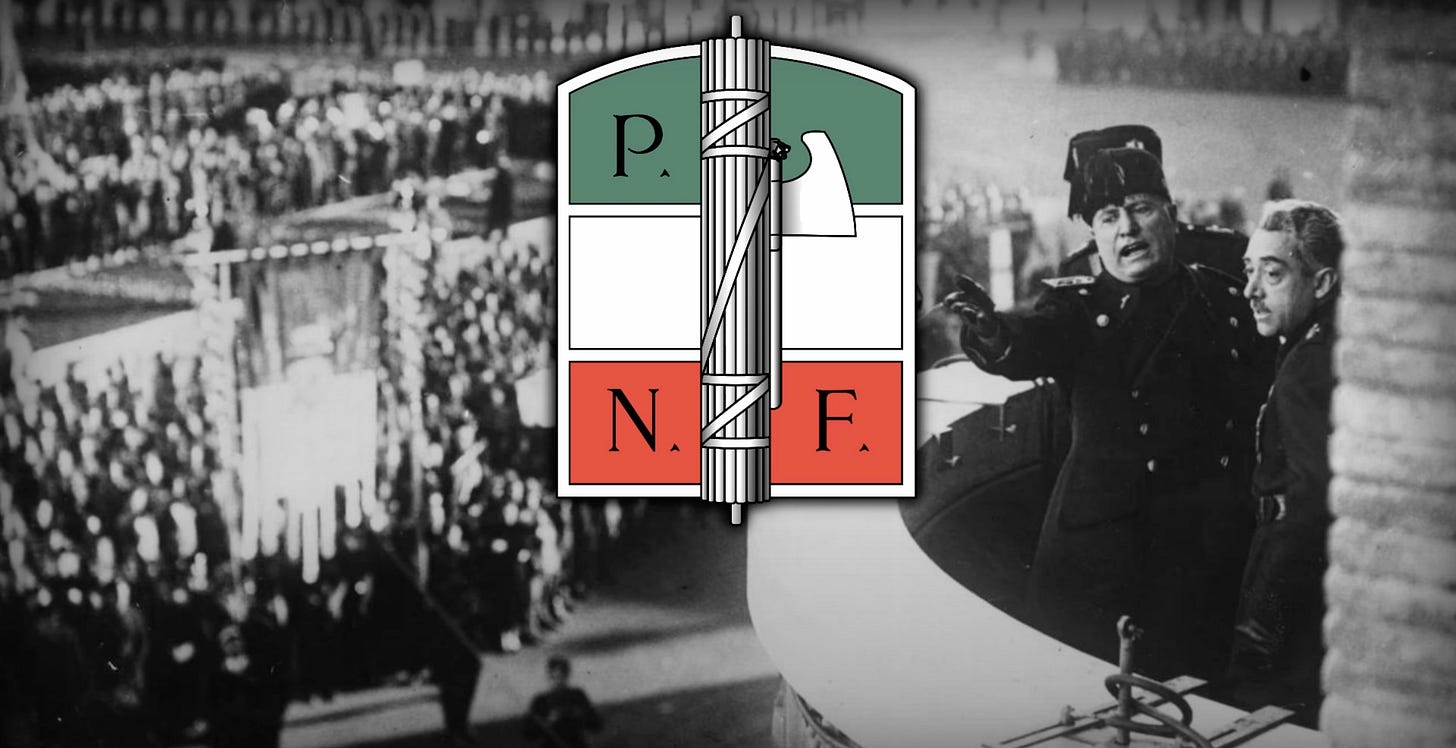
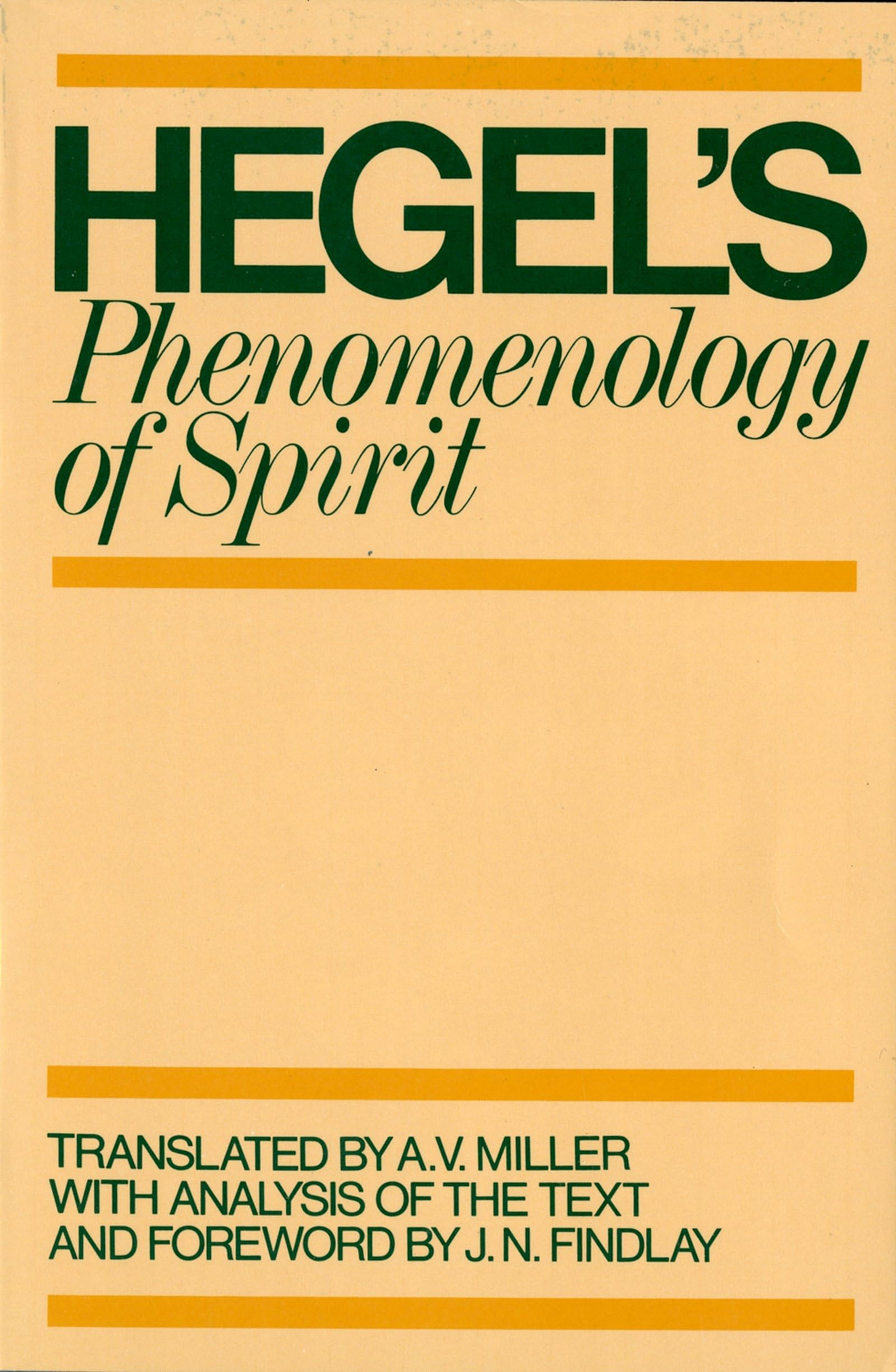
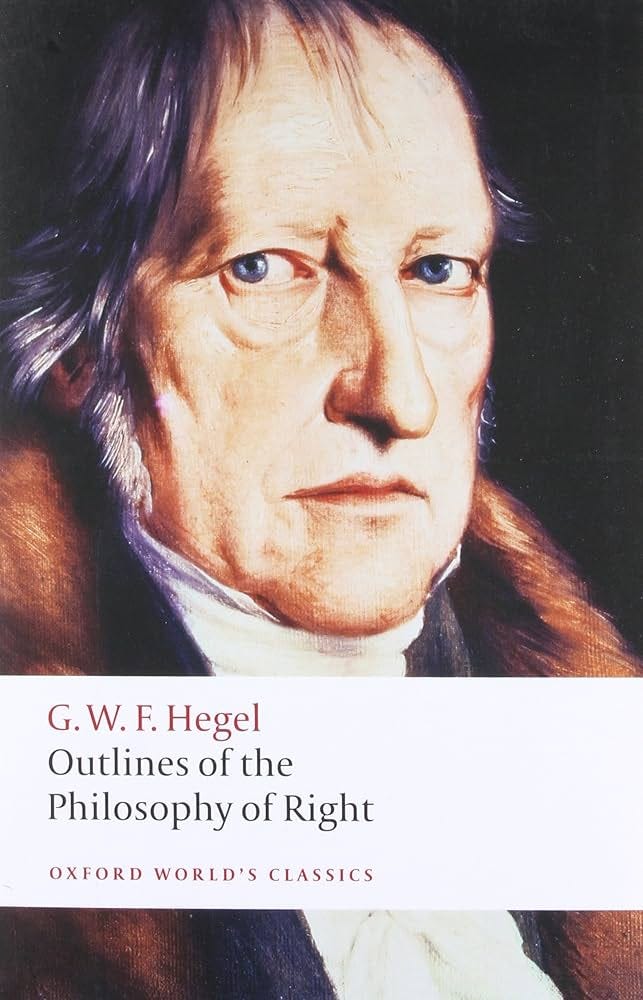
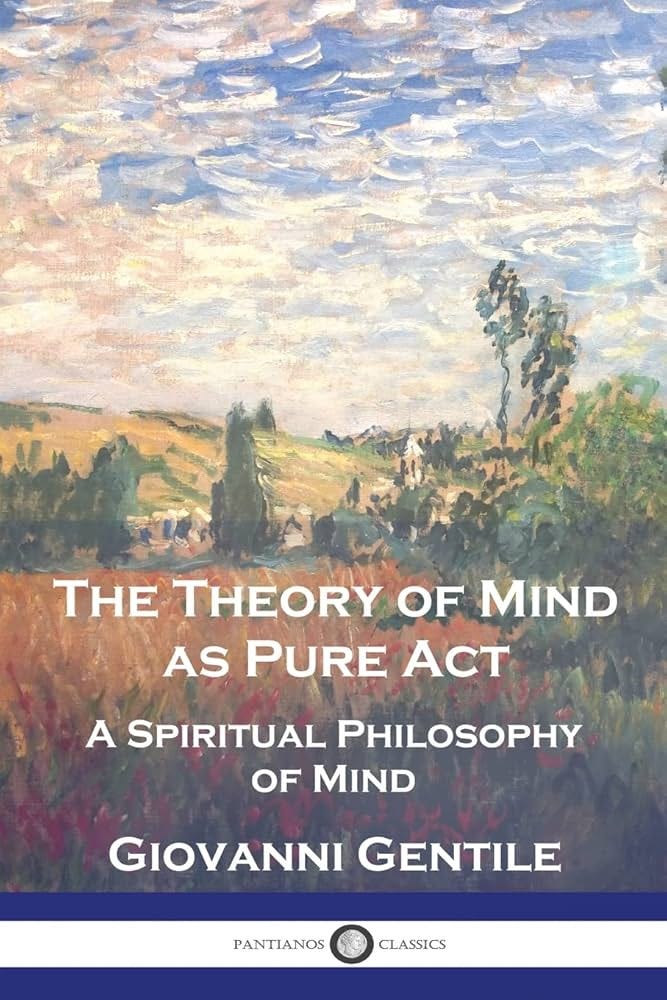
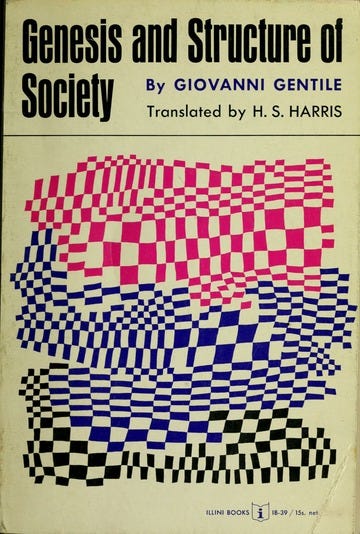
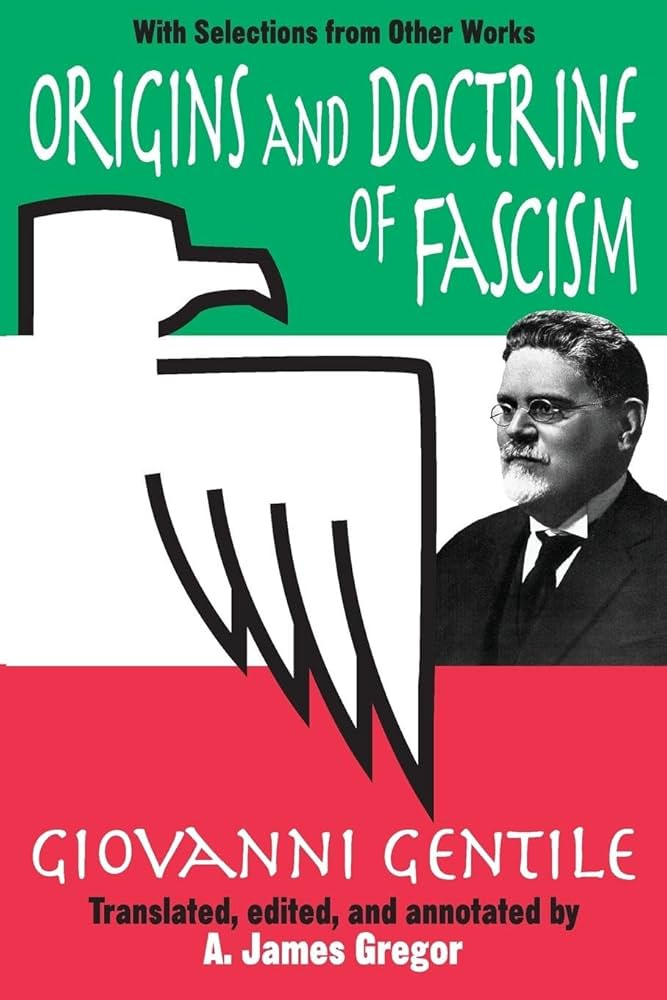
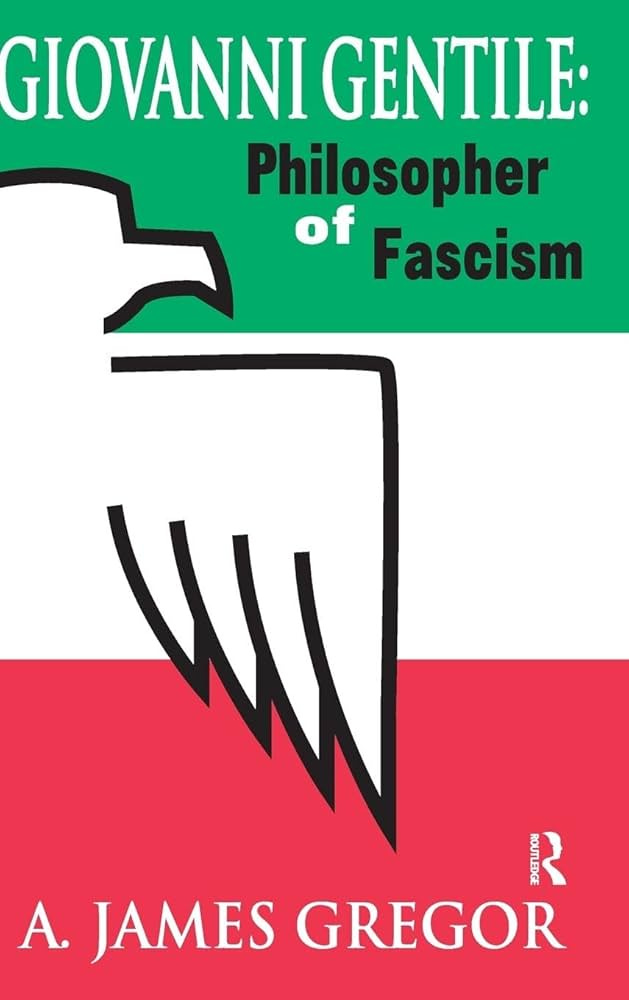
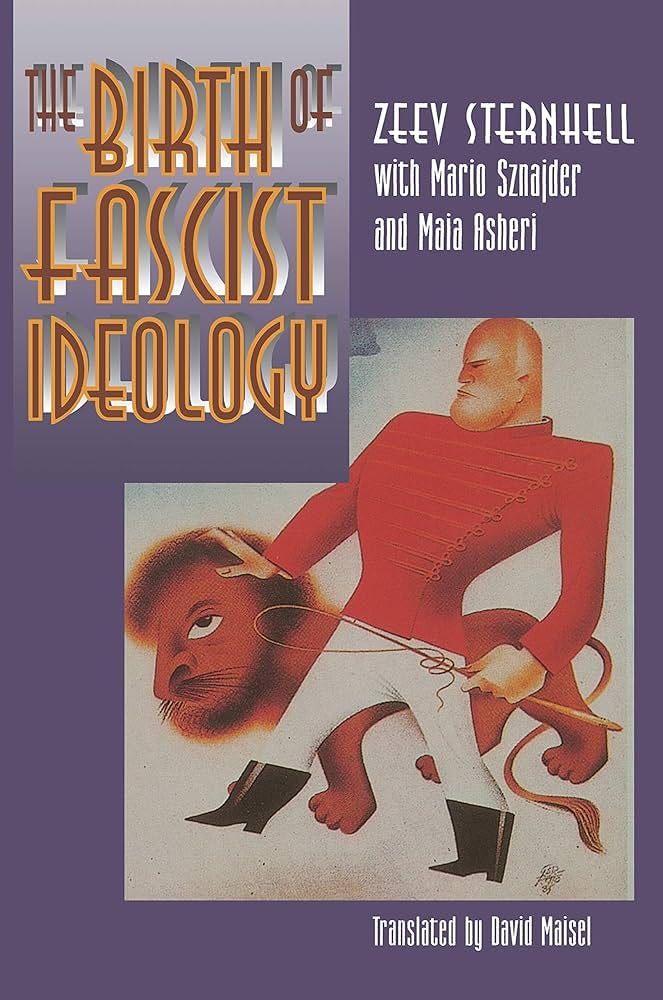

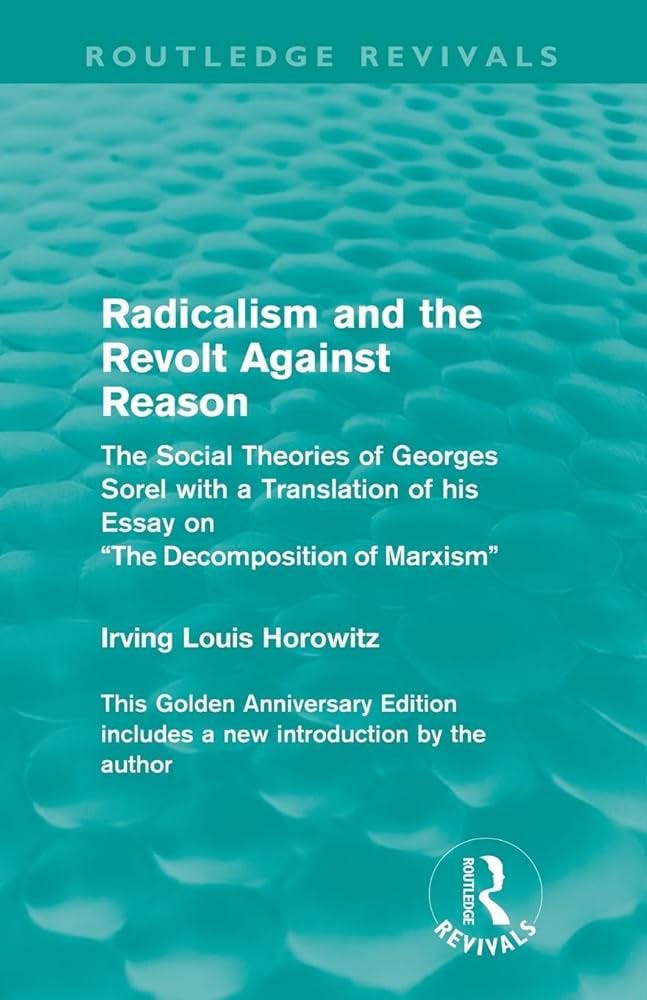

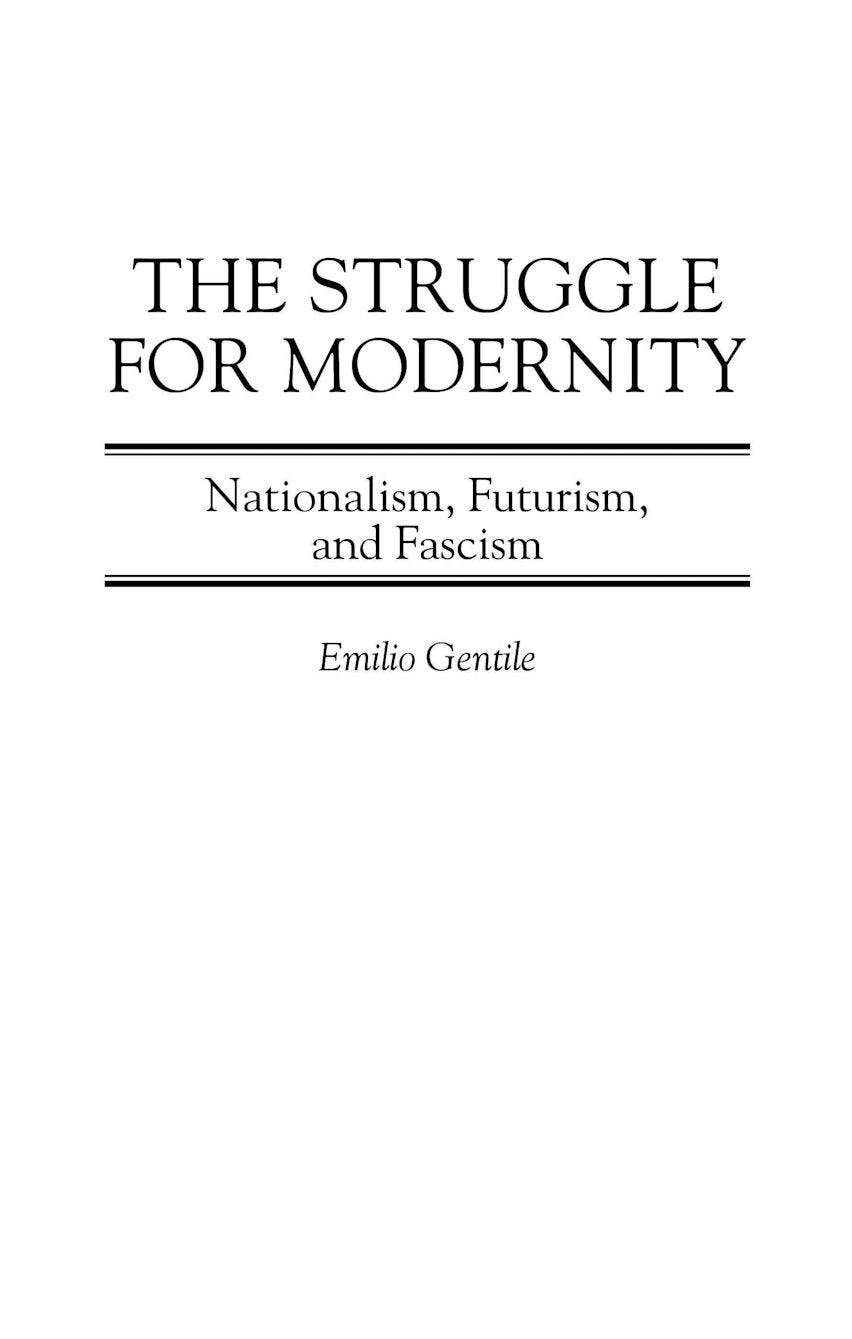
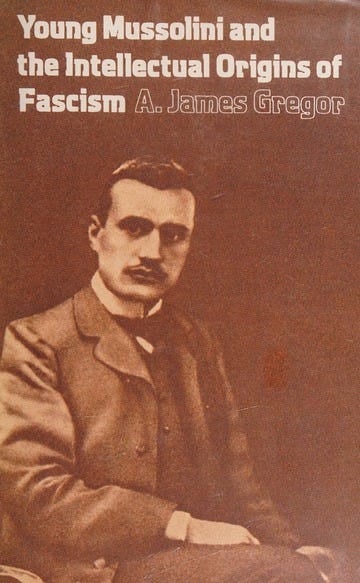
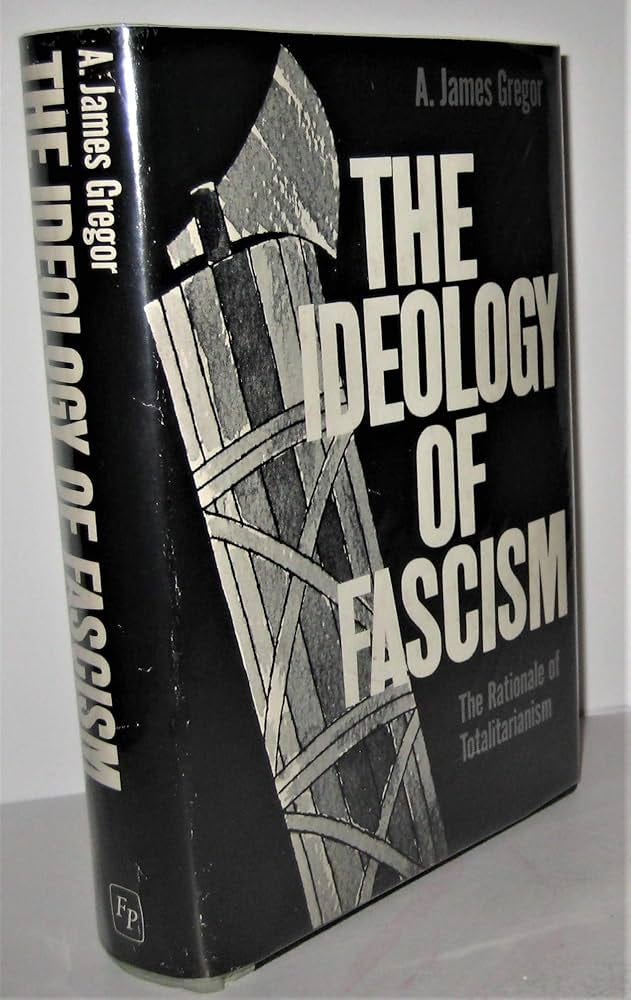
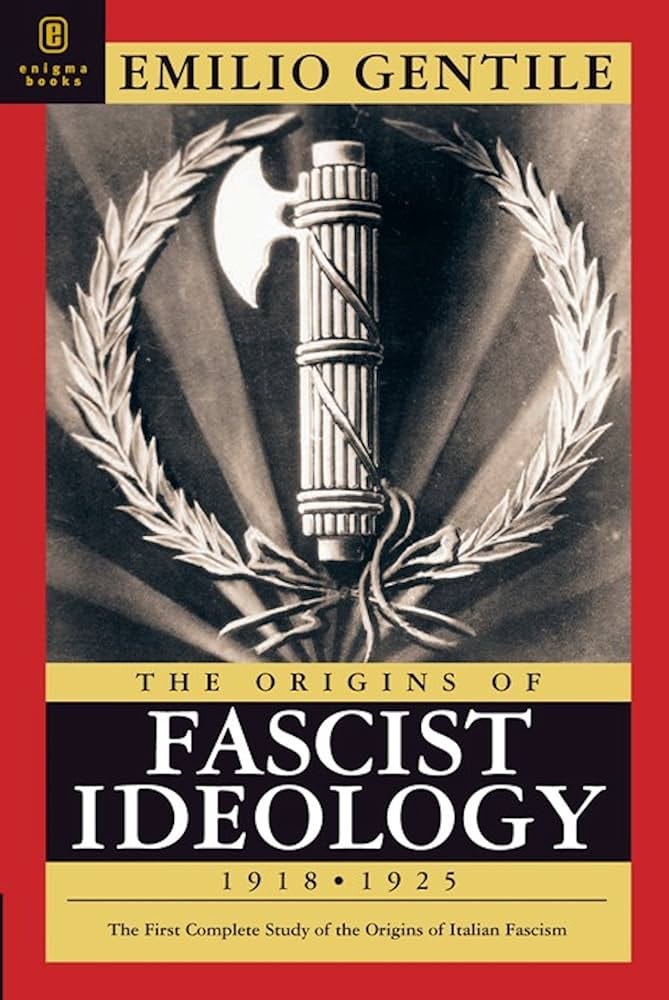
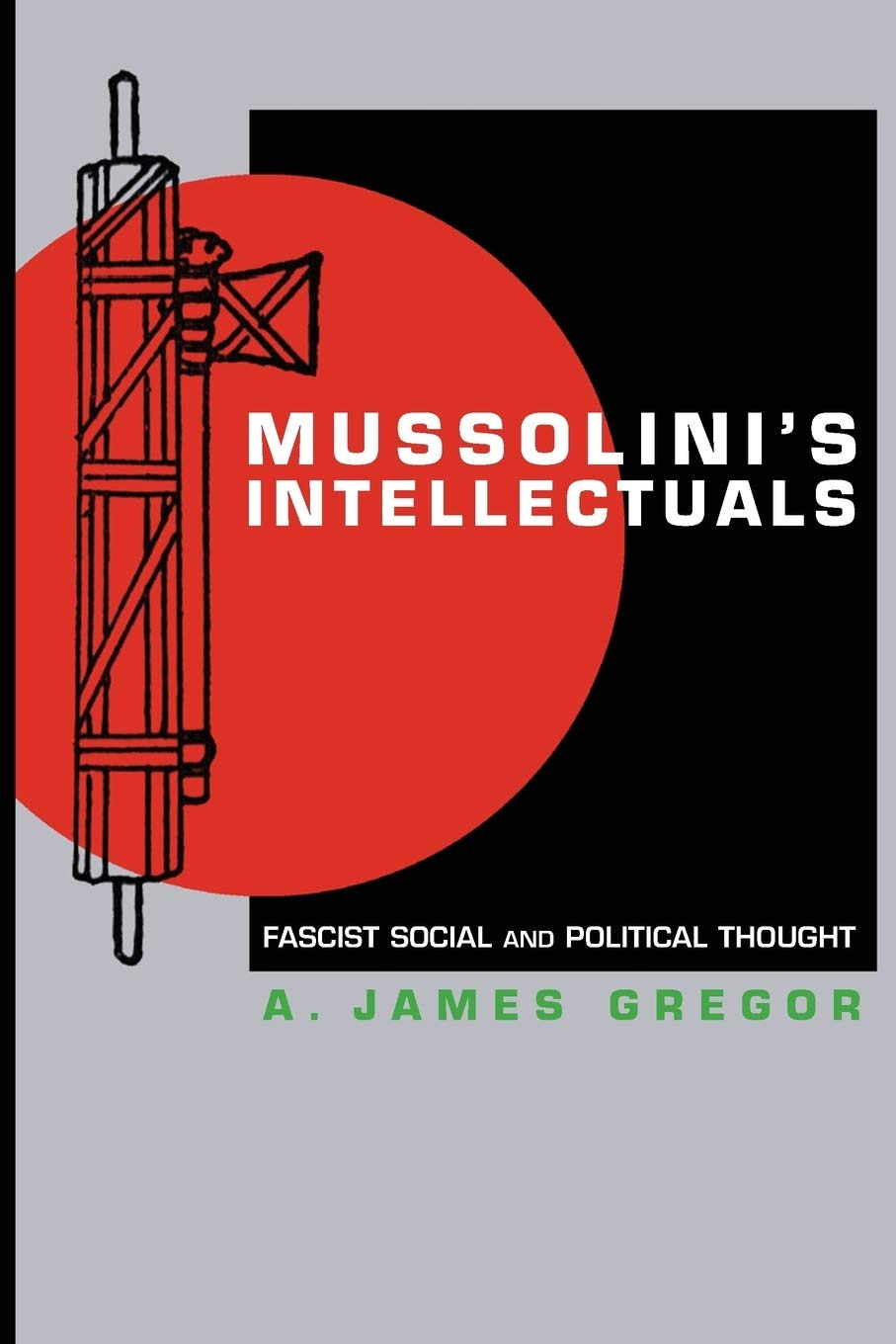
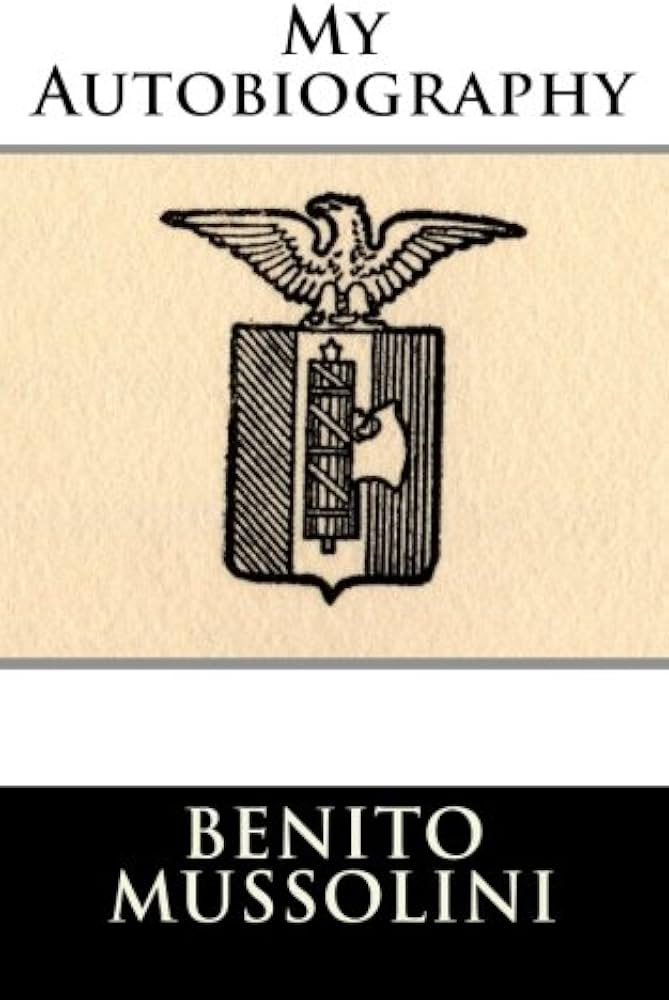
Introduction to the Reading of Hegel by Alexandre Kojève is the easiest entry point into Hegel.
Absolutely no one can Raw Dog Phenomenology of Spirit and have any understanding of what is going on.
Thank you for this comprehensive list. Excited to get into it.